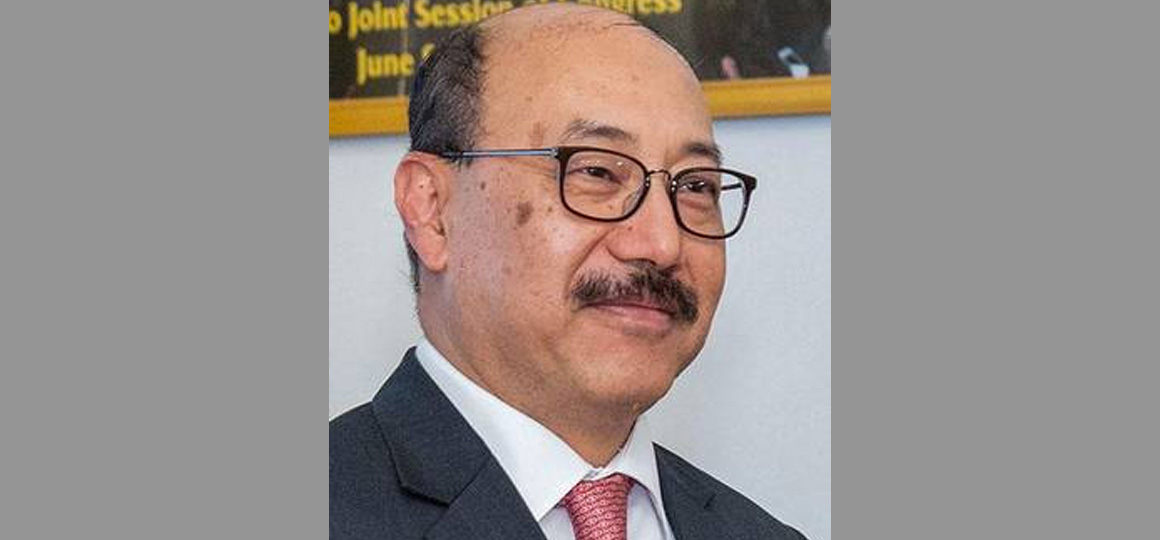Shringla says ‘epicentre of terror’ in India’s neighbourhood is still active
Lack of counter-terrorism cooperation between countries only “emboldens” terrorists, said Foreign Secretary Harsh Shringla, citing the 26/11 Mumbai attacks in which people of several nationalities were killed; last week’s Texas Synagogue shootout involving a British citizen of Pakistani origin; as well as the drone attack by Yemeni Houthis in the United Arab Emirates where two Indians died, as examples of this. In particular, Mr. Shringla said, without directly naming Pakistan, the Texas attack proved that terrorism in India’s neighbourhood is active.
“The recent incident in Texas, United States once again demonstrates that the international network of terror, with its epicentre in India’s neighbourhood, is very much active and has long lasting implications,” Mr. Shringla said at a seminar organised by think tanks ORF-NMF-KAS on India-EU and India-Germany cooperation in the Indo-Pacific region. “This is a global threat that requires an unambiguous, undivided, effective and collective response,” he added.
On January 16, Malik Faisal Akram, a 44-year-old British citizen, took four people hostage at a Texas synagogue in a ten-hour standoff that ended after U.S. security forces shot him. All four hostages were unharmed. During the hostage crisis, which was live-streamed, Malik Akram had made a demand for the release of Pakistani-American physicist Aafiya Siddiqui, who is serving a life term in prison for an attack on U.S. soldiers in Afghanistan. The synagogue case is under investigation in the U.S. and the U.K., where British police have arrested two people.
Without elaborating on the reasons for making the linkage, Mr. Shringla said that the motivation of terrorists must not be used to undermine the fight against terrorism, and quoted External Affairs Minister S. Jaishankar’s recent speech at the UN Security Council that “there cannot be any exception or any justification for any act of terrorism, regardless of motivations behind such acts”. He said that it was in this context that India had condemned the attack on “innocent civilians and civilian infrastructure” in Abu Dhabi, where three people, including two Indians and a Pakistani were killed, and six injured, was “completely unacceptable; would be in blatant violation of international law; and against all civilised norms”.
Speaking about the Indian Ocean and Pacific Ocean region, Mr. Shringla said that the Indo-Pacific is “not just a geographical construct”, and called it the “new epicentre of global politics and global economics”. He also said that the region requires a common rules-based order that respects sovereignty and territorial integrity, and stronger supply chains.“The impact of the recent supply chain disruptions was felt by all. The global challenges of sustainable development, environmental protection and climate change are more acute in the region. They can only be addressed through collaborative effort that promotes linkages rather than economic dependencies and debt traps,” he said in comments believed to be aimed at Chinese funding for projects in the neighbourhood.
Attacks in Texas, Abu Dhabi show need for international cooperation on terrorism: Foreign Secretary
Shringla says ‘epicentre of terror’ in India’s neighbourhood is still active
Lack of counter-terrorism cooperation between countries only “emboldens” terrorists, said Foreign Secretary Harsh Shringla, citing the 26/11 Mumbai attacks in which people of several nationalities were killed; last week’s Texas Synagogue shootout involving a British citizen of Pakistani origin; as well as the drone attack by Yemeni Houthis in the United Arab Emirates where two Indians died, as examples of this. In particular, Mr. Shringla said, without directly naming Pakistan, the Texas attack proved that terrorism in India’s neighbourhood is active.
“The recent incident in Texas, United States once again demonstrates that the international network of terror, with its epicentre in India’s neighbourhood, is very much active and has long lasting implications,” Mr. Shringla said at a seminar organised by think tanks ORF-NMF-KAS on India-EU and India-Germany cooperation in the Indo-Pacific region. “This is a global threat that requires an unambiguous, undivided, effective and collective response,” he added.
On January 16, Malik Faisal Akram, a 44-year-old British citizen, took four people hostage at a Texas synagogue in a ten-hour standoff that ended after U.S. security forces shot him. All four hostages were unharmed. During the hostage crisis, which was live-streamed, Malik Akram had made a demand for the release of Pakistani-American physicist Aafiya Siddiqui, who is serving a life term in prison for an attack on U.S. soldiers in Afghanistan. The synagogue case is under investigation in the U.S. and the U.K., where British police have arrested two people.
Without elaborating on the reasons for making the linkage, Mr. Shringla said that the motivation of terrorists must not be used to undermine the fight against terrorism, and quoted External Affairs Minister S. Jaishankar’s recent speech at the UN Security Council that “there cannot be any exception or any justification for any act of terrorism, regardless of motivations behind such acts”. He said that it was in this context that India had condemned the attack on “innocent civilians and civilian infrastructure” in Abu Dhabi, where three people, including two Indians and a Pakistani were killed, and six injured, was “completely unacceptable; would be in blatant violation of international law; and against all civilised norms”.
Speaking about the Indian Ocean and Pacific Ocean region, Mr. Shringla said that the Indo-Pacific is “not just a geographical construct”, and called it the “new epicentre of global politics and global economics”. He also said that the region requires a common rules-based order that respects sovereignty and territorial integrity, and stronger supply chains.“The impact of the recent supply chain disruptions was felt by all. The global challenges of sustainable development, environmental protection and climate change are more acute in the region. They can only be addressed through collaborative effort that promotes linkages rather than economic dependencies and debt traps,” he said in comments believed to be aimed at Chinese funding for projects in the neighbourhood.






NO COMMENT